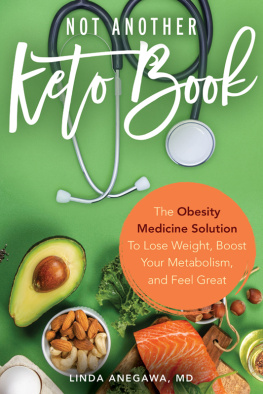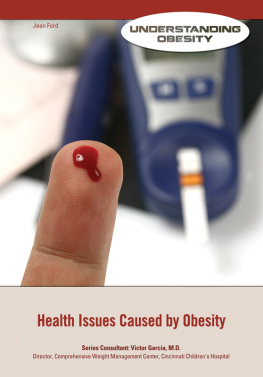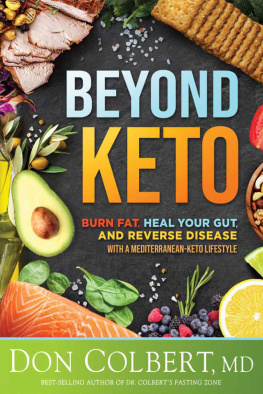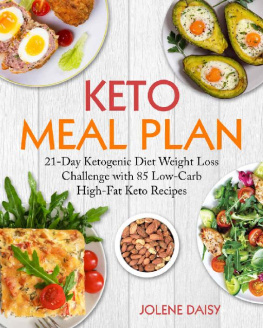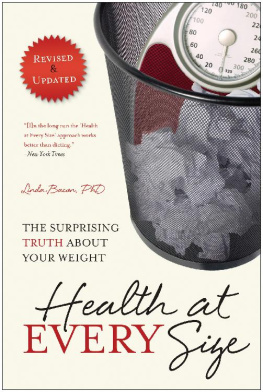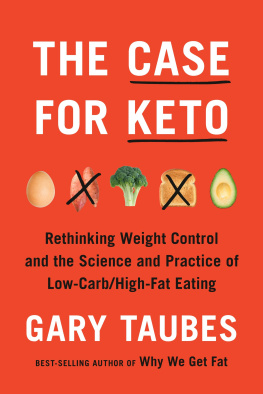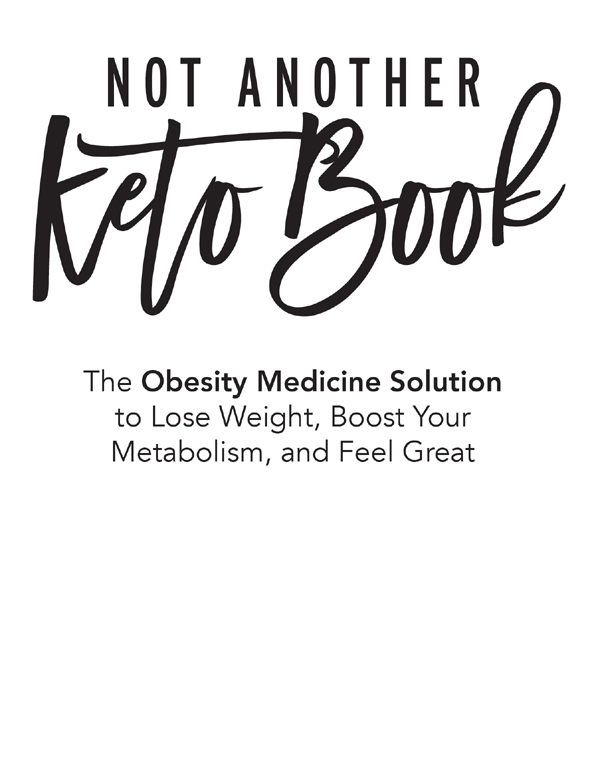Copyright 2021 Linda Anegawa
All rights reserved. No part of this publication may be reproduced, distributed, or transmitted in any form or by any means, including photocopying, recording, or other electronic or mechanical methods, without the prior written permission of the publisher, except in the case of brief quotations embodied in critical reviews and certain other noncommercial uses permitted by copyright law. For permission requests, write to the publisher, addressed Attention: Permissions Coordinator, at the address below.

Contact information for Tuxedo Paw Press
ISBN: 978-1-7369685-0-5 (print)
ISBN: 978-1-7369685-1-2 (ebook)
Ordering Information:
Special discounts are available on quantity purchases by corporations, associations, and others. For details, contact .
To my husband Ron, endless gratitude.
Your amazing cooking and incredible love
have nourished me all through the writing process.
DISCLAIMER
The aim of this book is to share my approach to obesity medicine and to discuss general concepts relating to metabolic health. It should not be taken as individual medical advice under any circumstances. Prior to beginning a weight-loss or diet program of any kind, you should always seek the advice of your personal physician.
I always consider that the shape of the future is in our hands. The past is past and cant be changed, but the future has not yet arrived.
The Dalai Lama
Well, its not exactly a weight-loss book. This book is actually about Obesity Medicine. Let me explain the difference.
BACKGROUND
Over the last 50 years, Americans have gotten heavier and sicker, despite being advised to eat less and exercise more. Carrying excess weight goes hand-in-hand with poor metabolic health, and this condition has become one of the biggest threats to modern global health.
Metabolic healthas defined as having normal blood glucose, lipids, blood pressure, and body compositionhas become more and more elusive, with data from the National Health and Nutrition Examination Survey in 2019 and the American Society of Clinical Endocrinologists showing that only 12% of Americans meet the definition of metabolic health.
FOOD for THOUGHT
Markers of Good Metabolic Health*
Fasting Glucose <100
Hemoglobin A1C <5.7% Triglycerides <150
High-density lipoprotein (HDL) Cholesterol >40
Blood Pressure <130/85
Waist Circumference <35 if biologically female, <40 if biologically male
*These numbers also assume that a person is not taking medications to control these factors (such as blood pressure or diabetes medications).
The higher our weight, the more likely we are to be metabolically unhealthy, particularly if excess weight is stored around the midsection. We know that belly weight behaves in an entirely different way hormonally than weight on the arms or legs and that it puts us at higher risk for cardiovascular disease and type 2 diabetes.
In addition to the classic metabolic health parameters, our struggle with the COVID-19 pandemic has made it quite clear that metabolic health probably has a much broader definition to also include strong immunity and disease resistance. Data have been rapidly accumulated to indicate that metabolically unhealthy individuals are at the highest risk for severe disease and death from the coronavirus. Studies of over 40,000 COVID-19 patients treated at academic centers in New York City in March and April 2020 showed that a Body Mass Index (BMI) over 40 (roughly equivalent to being 100 lb. overweight) is one of the strongest predictors of hospitalization, even more so than being over the age of 65.
Another study of over 6,000 patients within the Kaiser system showed that death rates from COVID-19 in younger patients were clearly linked to BMI. This study was especially interesting given that other potential confounding factors that could increase death rates on their own, such as smoking, income disparity, and diseases like type 2 diabetes, were eliminated as possible influences.
COVID-19 and the aftermath has exploded like a bomb in our faces and shown us how our traditional approaches to disease care simply arent working. Originating from the US Centers for Medicare and Medicaid Services, which declared in 2004 that obesity is not a disease, an entire industry has sprung up with the premise that personal willpower is the key to weight loss.
But we all know what happened: The eat less, exercise more mantra, billions of dollars in exercise programs, supplements, books, Instagram diet gurus or coaches, and quick fixes have all gotten us nowhere. In fact, we are in a far worse predicament than in 2004, when 32% of all Americans were classified as having morbid obesity: that number has mushroomed to over 42.4% per data released from the Centers for Disease Control and Prevention (CDC) in February 2020.
WHAT IS OBESITY MEDICINE?
Okay, so back to this book and why I wrote it. In 2008, the Obesity Societyan organization of physicians, surgeons, and scientists dedicated to caring for patients with weight-related illnessgathered an expert scientific panel to review a rationale for labeling obesity as a disease for the very first time. Historically, because of the relationship between ones weight and ones physical appearance, plus moral beliefs and weight-related discrimination, the superficial implications of excess weight have received far more attention than the medical ones.
Fortunately, the tide began turning in 2013 with the American Medical Associations recognition of obesity as a complex, chronic disease that requires medical attention. This truly was a turning point over 30 years in the making! However, I find that most people are still reluctant to embrace obesity as a medical condition, and affected individuals continue to suffer from blame and embarrassment plus reduced access to the care that they so critically need.
As a double board-certified obesity medicine and internal medicine physician, I want readers to experience, as closely as possible, what a walkthrough of my typical weight-management consultation visit looks like.
And while its no secret that low-carbohydrate eating habits are a big part of my toolbox, I present a far more comprehensive adapt and adjust approach to overall life change, versus the more common weight-loss and maintenance approaches, which I feel only reinforce the black-and-white diet-mentality thinking that rarely leads to lasting change.
Notice that thinking about a plan to adapt and adjust is a very different mindset than most of us have when starting a new lifestyle program. We tend to think of ourselves as being either on a diet or off a diet (AKA cheating). Such a black-and-white approach to dieting has never led anyone to long-term success with health and wellness! That is why I vastly prefer the terms adapt and adjust: I believe they help to reinforce the concept that the changes we make are not a quick fix or something you are going to temporarily suck up so you can go back to eating junk food. Thats not how metabolic health happens.

